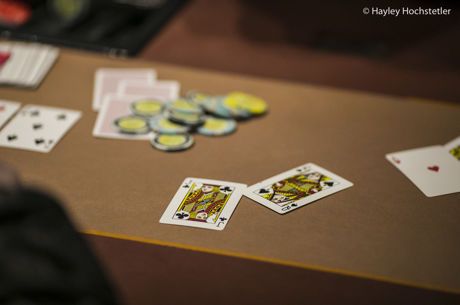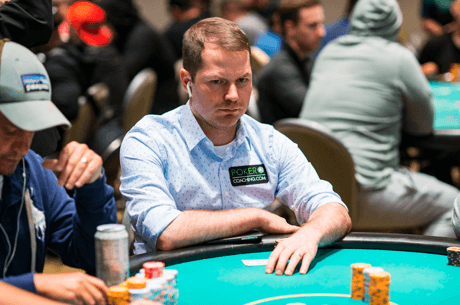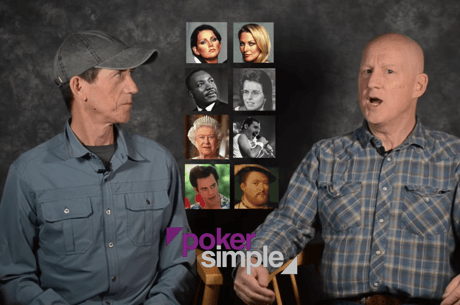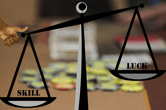The Badder the Beat, the Better It Is
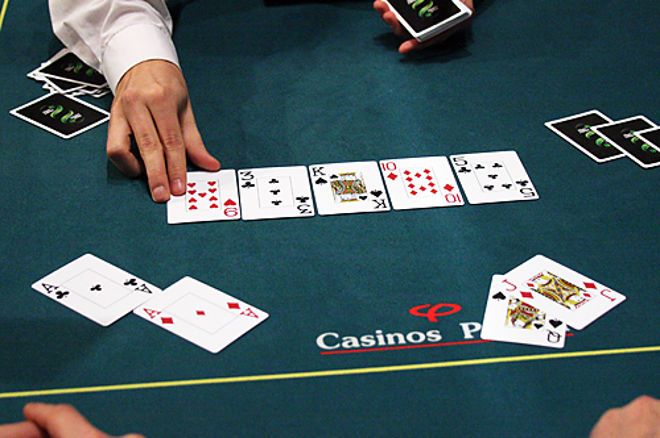
Bad beats get a bad rap. Personally, I have learned to love them, and in my opinion, the badder the beat, the better.
Now before you crucify me for this unpopular take and grammar mistake, hear me out.
What exactly is a bad beat? It's when you lose a hand after getting it in with the best of it by far. In 2016, I lost a 100-big blind pot on Day 3 of the World Series of Poker Main Event with pocket queens to Maria Ho's ace-king. That very well could have been a life-changing win for me had my queens held, but losing did not feel like a bad beat because I was not far ahead when the chips went in. It was a standard flip.
Open QQ on BTN, @MariaHo 3bets AK from BB, I 4bet, she rips. AAx flop, but the best possible way to bust the main. Made Day 3. Didnt bubble.
— Carloose Welch (@HipHop101Trivia)
I walked away with a smile, but I would not have felt the same had she beaten me with pocket jacks. That clearly would have fit the definition of a bad beat, or at least as I understood it then.
Today I believe that definition of a bad beat is outdated. Now I understand that even J-J beating Q-Q in that spot would have been a standard circumstance that wouldn't really have risen to the level of a bad beat defined more broadly. Let me explain.
In the hand I opened from the button and Ho three-bet from the big blind. I responded with a four-bet, she shoved, and I called with each of us putting in a little more than 50 big blinds. In other words, in the actual hand we each had about 50% equity which made it a flip and not a bad beat.
Since that time, I have learned that poker is never strictly about the actual hand, but about the ranges. The hand �� Q-Q vs. A-Ko �� "played itself" in this spot, as the saying goes. But Q-Q vs. J-J would have as well. Sure, in the latter case, I would have been a 4.5-to-1 favorite once we were all in, but if Ho and I had swapped hands, I would have played pocket jacks the same way and would have been a 4.5-to-1 dog. In the long run, these outcomes would cancel and result in a dead heat which is actually even more of a flip than Q-Q vs. A-Ko hand in which I was technically a slight favorite. Take that, Maria!
Here's the point. The real problem with bad beats is those that are really just "coolers" like J-J topping Q-Q for 50 BBs effective increase our variance without compensating us in the form of increased expected value in the long run. These variance bombs are unfortunate, but since they cannot be avoided, I have learned to ignore them in the same way that I ignore flips.
What's left are non-cooler bad beats where our opponent gets it in bad in a spot where we wouldn't have gotten our chips in were the hole cards reversed. In fact, those are the hands that I've learned to love. Why? Because they are indicative of a real edge that will compensate me handsomely in the long run.
Maria Ho is too good of a player to five-bet shove with 6-5s in our example. But some players are bad enough to do just that, and I am happy for them to bad beat my Q-Q occasionally because I know that I will never return the favor. Instead of agonizing when they win, I now look for more spots to let them try and bad beat me again. These spots can be relatively rare preflop, but there is a seemingly endless supply of them postflop.
Finding players who will get it in this bad starts from hand number one of a tournament. After an orbit or two, you will know that there are players like this in the game if several pots have gone multi-way. This is easy to observe online if you use a HUD. If you see lots of VPIP stats in the 35% range (or higher), you know you're in the right place.
In this sort of game, hands go to showdown often in the early levels. This gives you an opportunity to see what hands these people are playing and if they are generally aggressive or passive with their wide ranges. Once you gather enough evidence, you can bluff catch the aggressive ones and value bet the passive ones with hands just above the range they are playing. The mistakes they make with bad hands have the effect of turning your marginal hands into monsters. This is where lies the opportunity to get it in good with a wider range �� and to experience more non-cooler bad beats.
For example, it is not unusual in these games to see a passive player call an early position open from middle position with any Broadway hand. If the action folds around to me in the big blind, I will call with a hand like A-To and play very fast on most ten-high boards if I can get it heads-up with the field caller postflop.
Let's say the board is T-9-2 rainbow. The opener c-bets and gets a call from the player in middle position. I will then check-raise with my ace-ten and bet three streets if the opener folds and only the field caller is left in the hand. This is because he has made the mistake of getting involved preflop with too many hands and showing that he is willing to call down with that range for far too many chips. I would expect this player often to pay off three streets with hands like K-T, Q-T, J-T, and T-8s. He would also call at least two streets with K-Q, K-J, Q-J, and 8-7 where a more aggressive player might raise.
That's a lot of combos I can value target, especially since I expect a player like this to raise the turn or river with any hand better than one pair to let me off the hook cheaply. Unfortunately for me, this player sometimes doesn't catch up until the river and I end up shoving into a rivered two pair or better. If the river is a king and he wins with K-T, I do not have much to celebrate. If the river is an ace and he wins with A-9o, then I know I am maximally exploiting his overly wide range and passive tendency.
Essentially, the worse the hand he shows up with, the more money I make in the long run in spite of the nasty beat I take in this one hand. These are the best kinds of bad beats because they happen only about one time in five and I can recreate the opportunity for them multiple times in a session. Meanwhile getting someone to five-bet shove into Q-Q with a hand like 6-5s is relatively rare.
Instead of cursing the heavens when we take one of these brutal beats, perhaps we should thank our lucky stars for the opportunity �� and start looking for more of them while they still exist for significant sums of money.

